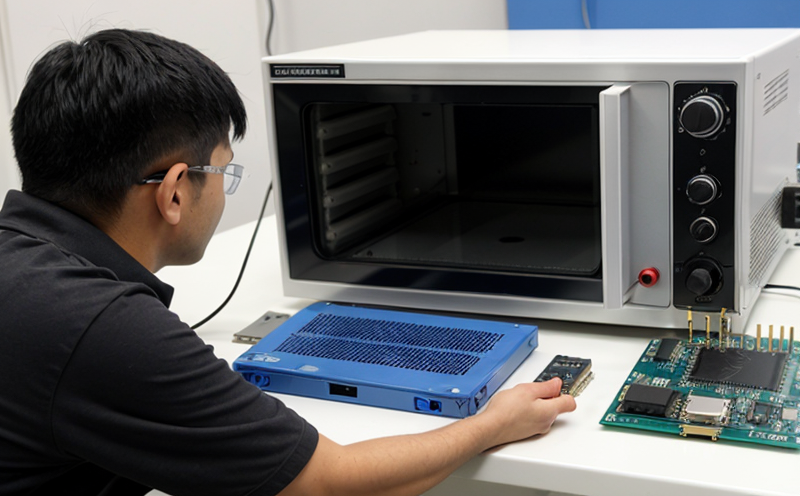ANSI C63 EMC Compliance Testing for Electronic Components
The ANSI C63 series of standards provides a comprehensive framework to evaluate and ensure electromagnetic compatibility (EMC) compliance within electronic components. This testing is crucial in reducing the risk of interference between electrical devices, thereby enhancing system reliability and safety.
Electromagnetic Compatibility refers to the ability of an electronic device or equipment to function properly in its electromagnetic environment without causing harmful electromagnetic disturbance to other devices in that environment. ANSI C63 standards specifically address issues related to radio frequency interference (RFI) and electromagnetic compatibility testing for electronic components, systems, and equipment.
These standards are widely recognized across various industries, including consumer electronics, medical devices, automotive, telecommunications, and industrial automation. Compliance with these standards ensures that the products perform reliably in real-world conditions without causing harmful effects on other devices or being affected by them.
The testing process involves subjecting electronic components to controlled electromagnetic environments using specialized equipment designed to simulate various interference scenarios. This can include exposure to radio frequency fields, conducted emissions, radiated emissions, and immunity tests. The goal is to ensure that the component behaves predictably under these conditions without causing or receiving harmful levels of electromagnetic energy.
For accurate testing, it's essential to follow strict protocols outlined in ANSI C63 standards. This includes precise calibration of test equipment, adherence to environmental control parameters (such as temperature and humidity), and careful handling of the components being tested. Rigorous quality checks are performed at each stage to ensure that no deviations occur which could compromise the integrity of the results.
The output from these tests provides valuable insights into how well a component meets specified EMC standards. These outputs can range from simple pass/fail results indicating compliance or non-compliance, to detailed reports highlighting specific areas where improvements are needed. Such information is invaluable for manufacturers looking to enhance product performance and meet regulatory requirements.
Compliance with ANSI C63 standards not only protects end-users but also promotes innovation by fostering an environment where reliable products can be developed. By ensuring that components adhere strictly to these guidelines, we contribute towards creating safer, more efficient, and interconnected systems.
Why It Matters
The importance of ANSI C63 EMC compliance testing cannot be overstated in today’s interconnected world. With increasing reliance on technology across all sectors, ensuring that electronic components do not emit unwanted electromagnetic signals or suffer from interference is paramount.
- Avoids potential disruptions to critical infrastructure such as healthcare facilities and transportation networks.
- Ensures interoperability between different devices operating in close proximity without causing mutual interference.
- Reduces the likelihood of product recalls due to safety hazards caused by electromagnetic issues.
In essence, compliance with ANSI C63 standards helps maintain a balance between technological advancement and user safety, contributing significantly to overall quality assurance within the electronics industry.
Benefits
Enhances product reliability by identifying potential sources of electromagnetic interference early in development cycles.
Promotes better design practices through detailed insights provided during testing phases.
Aids in meeting stringent regulatory requirements set forth by national and international bodies like FCC, CE marking, etc.
By incorporating ANSI C63 EMC compliance testing into their processes, companies can gain a competitive edge by delivering high-quality products that are trusted for both performance and safety.
Industry Applications
| Industry | Specific Application |
|---|---|
| Consumer Electronics | Ensuring compatibility with home entertainment systems and reducing interference in smart home devices. |
| Automotive Industry | Testing automotive electronics to ensure they operate safely in vehicles surrounded by other electronic systems. |
| Medical Devices | Evaluating the safety of medical equipment that might be used alongside other hospital devices. |
The versatility and importance of ANSI C63 EMC compliance testing extend beyond these examples, making it a cornerstone practice in numerous industries where reliable electronic components are essential.





